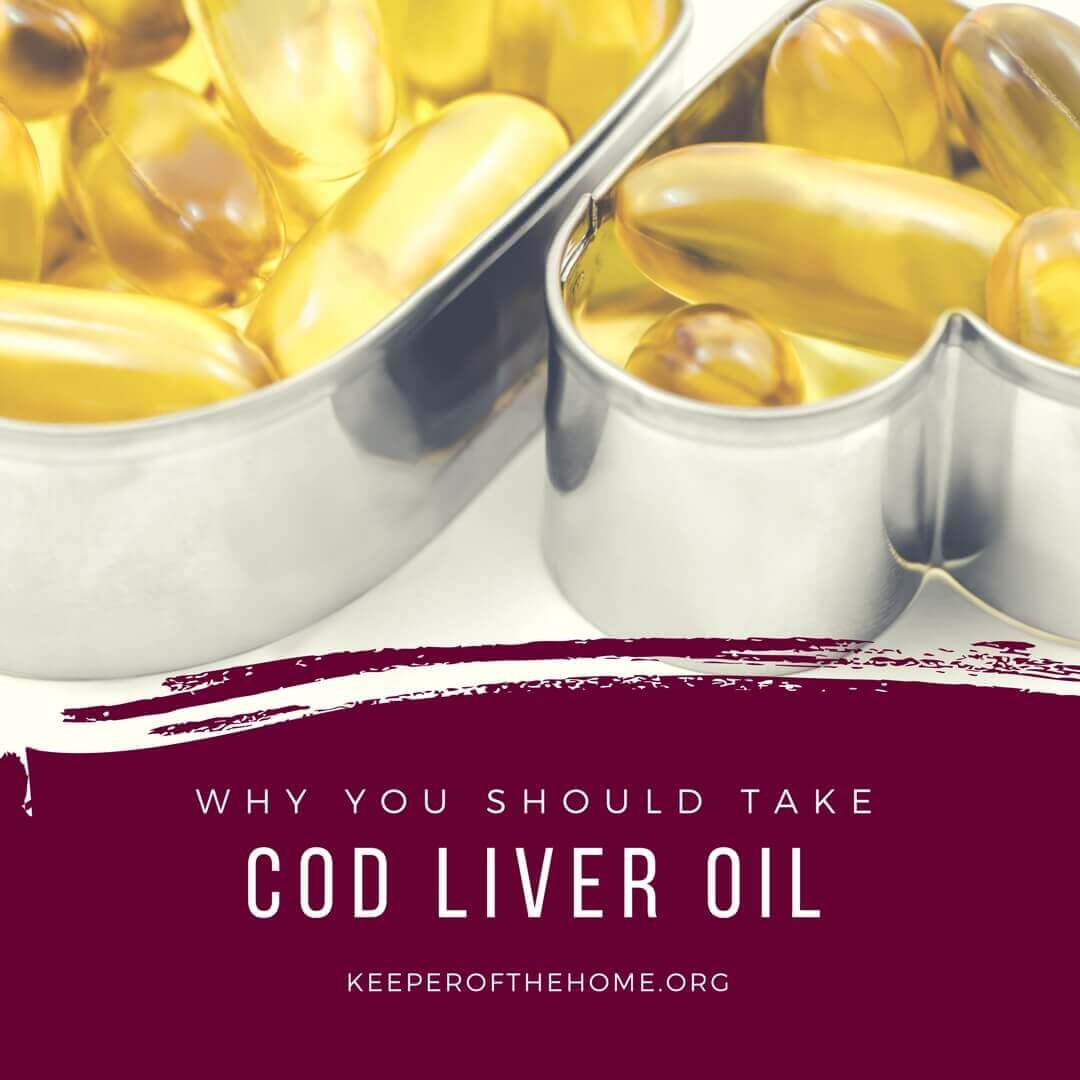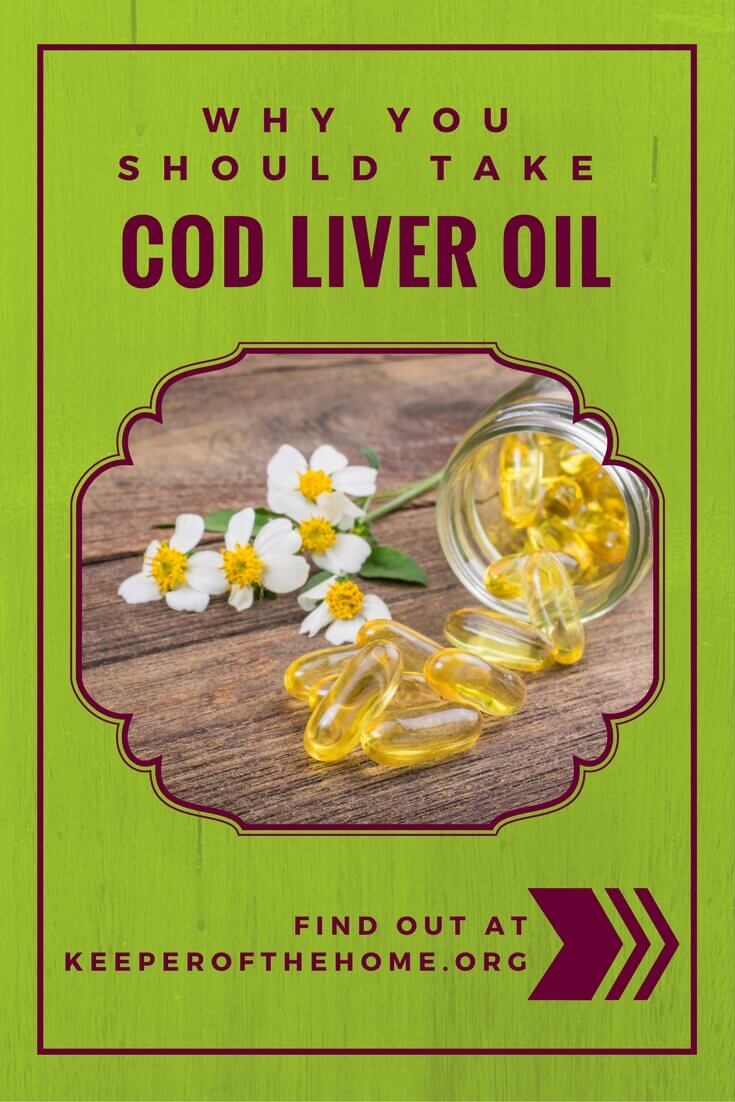
Should you take cod liver oil? Or…not? Well…
Wait, what? Isn’t cod liver oil something our great-grandparents had to take when they were children? Isn’t it just the punchline of jokes in this day and age? If you take cod liver oil aren’t you, well, going back in time?
Well, not exactly. It turns out that cod liver oil is still in use today, and for good reason: it functions as a supremely powerful food supplement with high levels of heart-healthy Omega-3 fatty acids, vitamin A, and vitamin D.
Who knew?!
I thought I’d explore a bit further to really understand how and why we should be incorporating cod liver oil as part of our daily regimen.

As its name implies, cod liver oil is derived from the actual liver of cod fish. Its earliest use can be traced back to the Viking era (around 700 – 100 AD), when it was an important part of the Norse diet during the cold winter months—prime fishing season—as they were able to have access to plenty of fresh, high-quality fish. Cod liver oil was considered highly valuable for its healing characteristics, as well as for giving increased strength and energy.
Not only was the oil consumed, but it was also rubbed on sore joints and muscles to provide some relief. It was claimed to cure gout and rickets, among other illnesses. By the time the mid 1700s rolled around, it was also used in lamp oil, soap, paint, and leather tanning.
Cod liver oil consumption reached its height in the first half of the 20th century all over the world. Around this same time, a study conducted at the University of Wisconsin revealed that fat-soluble vitamins A and D were two essential nutrients present in cod liver oil, and primarily contributed to its multi-faceted efficacy.
Though the widespread use of cod liver oil declined after the 1960s, not everyone gave up on its important use. In fact, many doctors still recommend it as a general supplement for both adults and children.
Reasons for supplementing with cod liver oil today include:
- It is high in the essential Omega-3 fatty acids EPA and DHA, which in addition to their anti-inflammatory properties are important for brain and nervous system function.
- It is an outstanding source for vitamins A and D. Vitamin A promotes a healthy immune system and strong vision; vitamin D is critical for proper absorption of calcium and also boosts the immune system.
- The combination of the vitamins and fatty acids have also shown benefits such as lowering high cholesterol and high triglycerides, lowering blood pressure, reducing the risk of heart disease, preventing diabetes, treating depression, healing skin lesions, alleviating allergies and asthma, alleviating arthritis, and preventing osteoporosis.
The Weston A. Price Foundation (nonprofit, tax-exempt, nutrition education foundation) suggests the following dosage:
- Children age 3 months to 12 years: A dose of cod liver oil that provides about 5000 IU vitamin A daily, obtained from about 1 teaspoon of regular cod liver oil or ½ teaspoon of high-vitamin cod liver oil.
- Children over 12 years and adults: A maintenance dose of cod liver oil that provides about 10,000 IU vitamin A daily, obtained from 2 teaspoons of regular cod liver oil or 1 teaspoon of high-vitamin cod liver oil.
- Pregnant and nursing women: A dose of cod liver oil that provides about 20,000 IU vitamin A daily, obtained from 4 teaspoons regular cod liver oil or 2 teaspoons high-vitamin cod liver oil.
(Note: Pregnant women may wish to consult their health practitioner about taking cod liver oil during pregnancy.)
As with most supplements, all cod liver oil is not created equal. Much depends on how the oil has been processed. The traditional method of fermenting the oil (lacto-fermentation) is preferred over high-temperature processing because the former retains more nutrients and preserves the ideal 5:1 vitamin A to D ratio. Green Pasture is one trusted source that uses the old-fashioned fermentation method.
You’ll want to be sure to avoid brands that have been highly processed, deodorized, or bleached; these have had so much of the good stuff leached out that synthetic vitamins have to be added back in.

So, if cod liver oil is such a great supplement, why did it ever lose its widespread popularity? And how did it become the punchline for jokes about having to do something distasteful?
Well, that’s just it: the distasteful part. It can taste pretty bad. So much so, that it’s standard practice for a lot of users to just hold their nose and swallow!
Here are some other tricks for making the “medicine go down” (no, not a spoonful of sugar):
- Try adding the dose of cod liver oil to some orange juice or lemon water, or even a smoothie, and drink up.
- Taste different flavored oils, like cinnamon, mint, lemon – different brands offer different flavors. You could also try an emulsified oil, like TwinLabs Emulsified Mint.
- Swallow your oil, then chase it with something with a gulp of water and a bite of something with a strong flavor, like sharp cheddar or almond butter.
- Capsules are another option, and tend not to have the flavor issues. (Though some people have had trouble with fishy burps — so, you’ll have to experiment.)
In general, cod liver oil is safe for most people, but because it can act as a blood thinner, people taking certain medications (high blood pressure, anticoagulants) should ask your physician before starting a regimen. And of course, if you experience any side effects, you should also consult your doctor.
Do you take cod liver oil? Do you notice a difference in your health when you take it? And how do you get it down?
Disclaimer: Although all Keeper of the Home contributors are passionate about nutrition, natural living, and alternative health issues, we are not certified nutritionists, medical doctors, or practitioners of any kind. We are not licensed to counsel anyone in medical matters, nor may we be held responsible for any course of action that you choose in regards to your own health or that of your family. Please remember that what we are sharing is the result of our own experiences and years of study, but may not necessarily be the right course of action for you. We are advocates of becoming informed, knowledgeable, and responsible for one’s own health, but our desire is not to be an authority on any matters of health for you, nor would we presume to have sufficient knowledge to do so. Our hope is that what we share may encourage you and start you on the road to doing your own research and seeking the opinions of professionals or others that you trust.
Disclosure: This post includes affiliate links. Thank you for supporting our work and mission!
Original article and pictures take keeperofthehome.org site
Комментариев нет:
Отправить комментарий